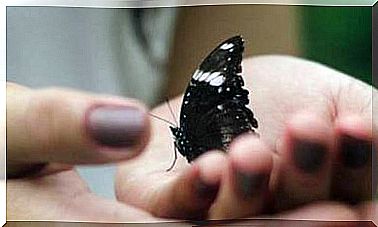Dying Is Not So Bad
We imagine dying must be terribly sad, but some recent studies with terminally ill and condemned prisoners point to the contrary.

We tend to avoid thinking about death, both our own and that of loved ones. Or, even if we think about her, we prefer not to talk about it, lest we call her. When someone close to us is diagnosed with an incurable disease with a fatal prognosis, we sympathize and, if we try to put ourselves in their shoes, it is very hard for us: we imagine that it must be extremely sad or downright terrible.
That is why we are moved by both testimonies such as that of Amy Krouse Rosenthal, the writer of children’s stories who, a few days before dying of ovarian cancer last March, wrote a beautiful letter entitled “You should marry my husband” (1) in which she explained with enviable good humor how recommendable her husband was, wishing that, when she was gone, he could live another love story as beautiful as the one she lived with him the 24 years they spent together.
Curiously, a new study (2) has confirmed that this is not so surprising: facing one’s own death is much less sad or terrifying than it seems or than we imagine. In fact, it seems that many of the people who know they are going to die soon feel relatively good or happy and express gratitude and well-being.
To investigate it, psychologists first analyzed the writings (blog posts) of people with diseases such as cancer or end-stage ALS. Only blogs from people who had passed away during the time of the study were included.
At the same time, they asked a group of volunteers to write imagining how they would feel if they had only a few weeks to live. When comparing the texts of both groups, it turned out that the texts of the people who had died conveyed a great deal of well-being, confidence and happiness, something that was not shown in the texts of the healthy volunteers who tried to put themselves in that situation, who imagined feeling distressed or even terrified.
Furthermore, the positive emotions of the patients seemed to increase as the end approached.
The most striking thing is that what motivated the study, according to the authors, was to know the last words of the prisoners sentenced to death in Texas published by the Department of Justice: they were mostly of gratitude, they expressed love and connection.
For the second part of the study in fact those last words and writings of the prisoners on death row were analyzed and compared with the writings of prisoners who were not convicted, and once again they found that those who were to be Those executed had written in more positive and hopeful terms than the others. According to the authors, all this reflects that dying may be more positive than you think.
Personally, I am struck by the fact that the study compares both things: terminal illness with the death penalty, without questioning the second (for me unjustifiable). It should not be the same to die that they execute you, I say …
I think about it as I remember the words of the brilliant Amy Krouse Rosenthal: Make the most of your time here.
References
- You should marry my husband (www.nytimes.com/es/2017/03/04/deberias-de-casarte-con-mi-esposo)
- Dying Is Unexpectedly Positive (journals.sagepub.com/doi/10.1177/0956797617701186)









